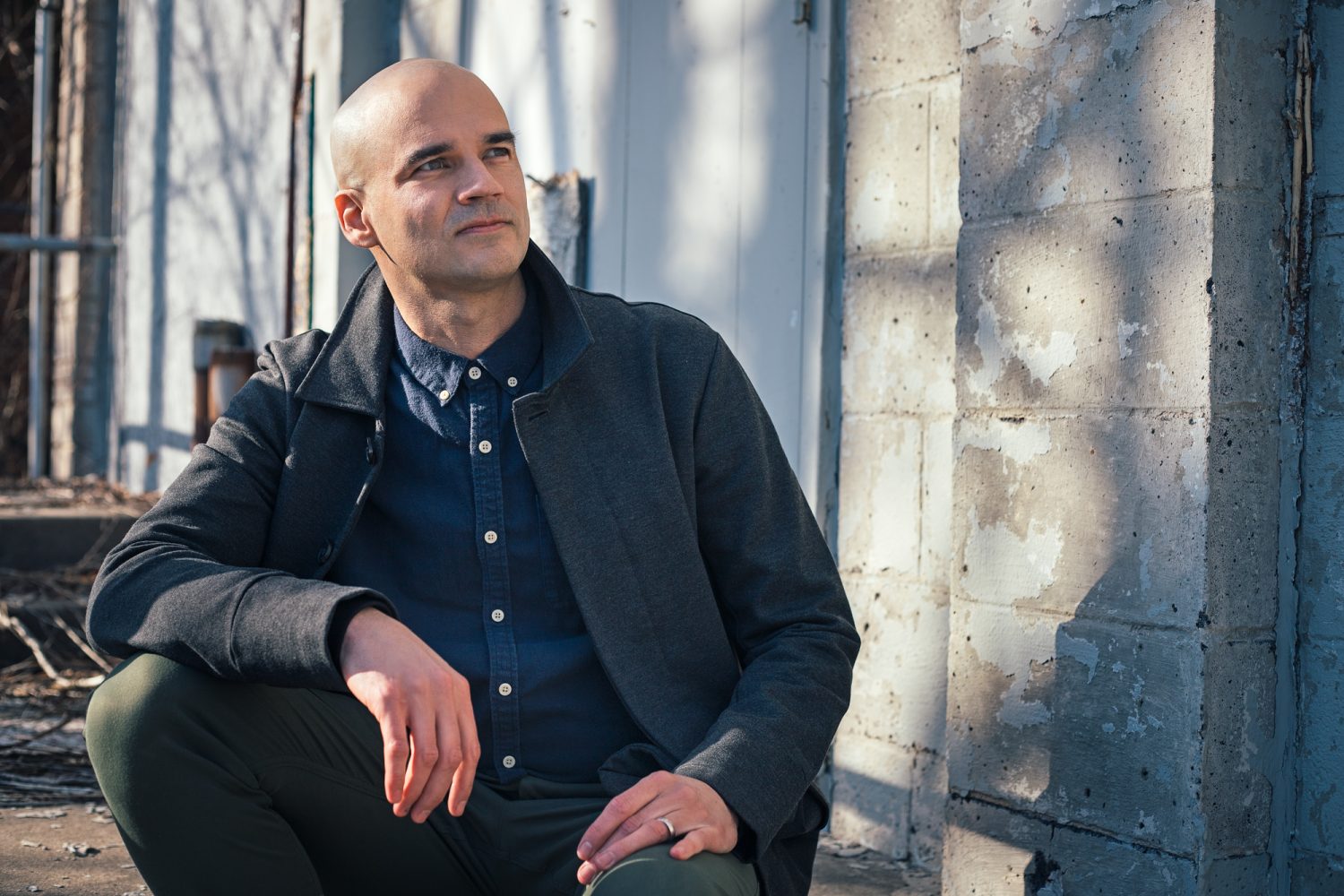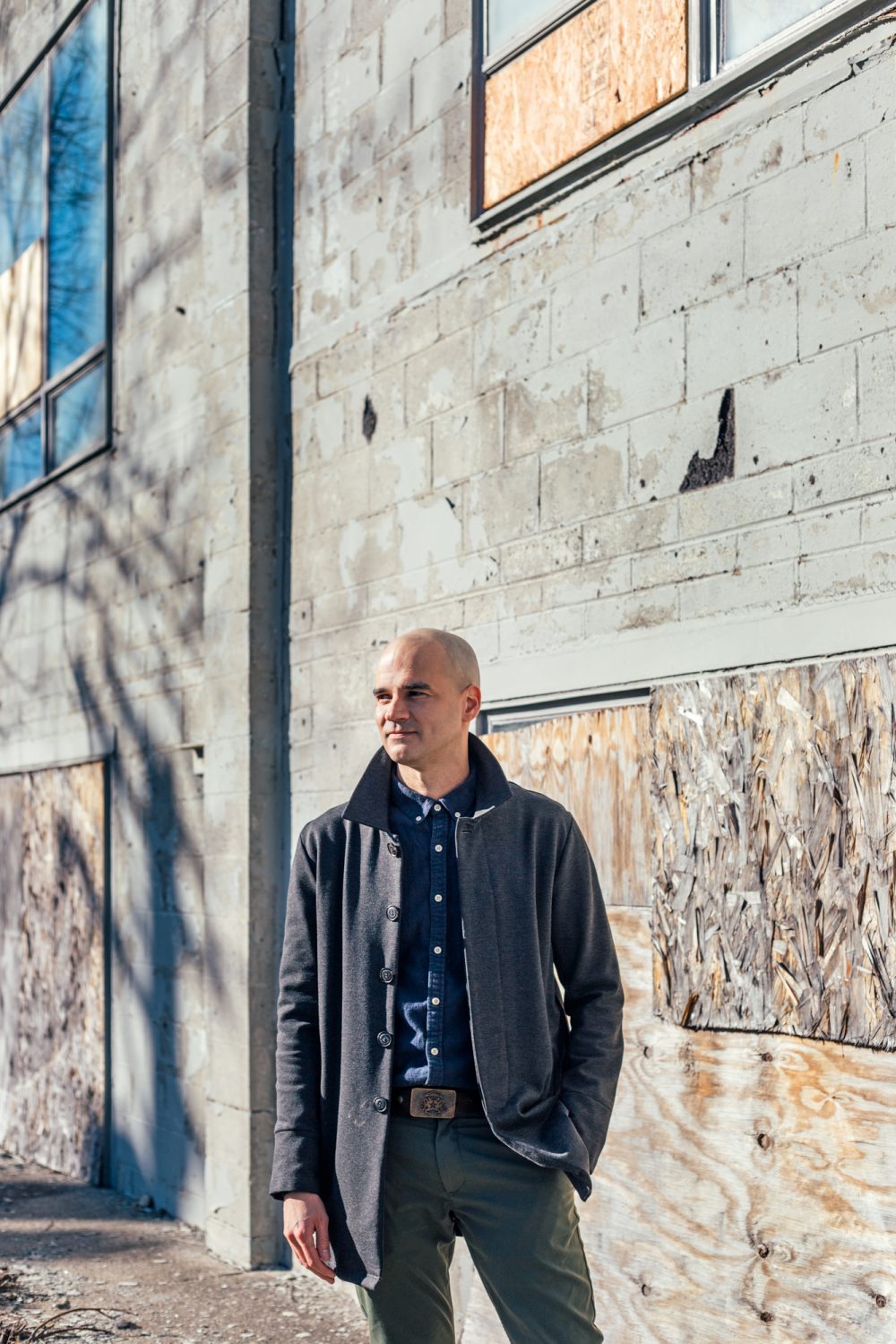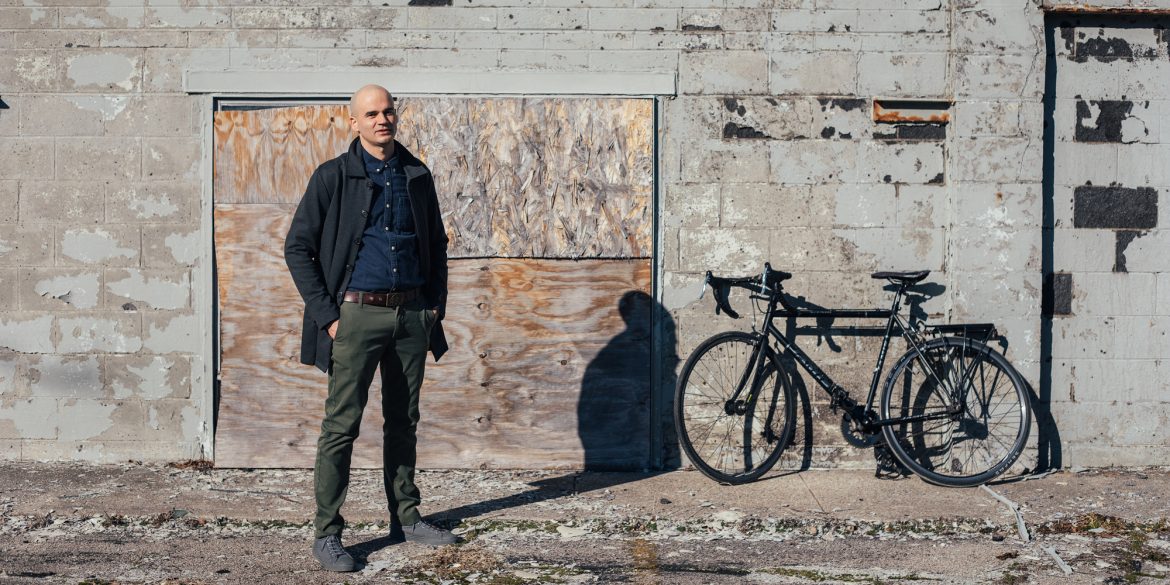If you’ve not heard of Michael Kaufmann, that’s not entirely surprising given his love of behind-the-scenes facilitation and preference to watch from the wings as a variety of arts and significant public art and civic projects take shape under his subtle guidance. Nonetheless, you’ve probably heard of some of the initiatives of which he has been a part of either as a board member, a consultant, or a strategist. From Plan 2020, to CICF, ArtMix, LISC, IndyHub, Connected Communities Initiative and many, many others, Kaufmann was also a label manager for Asthmatic Kitty, before serving as the VP of Civic Investment at Health & Hospital Corporation for the last decade. Recently resigning his position at H&H to pursue his own management and consulting company MERU, Kaufmann can easily rest on his civic engagement laurels for the rest of his life though that’s unlikely.
I sat down with Kaufmann to chat about his work, what’s next and my favorite topic of all, how can Indianapolis become a city known for its creatives.
 Polina Osherov: What’s your earliest memory of being creative?
Polina Osherov: What’s your earliest memory of being creative?
Michael Kaufmann: I remember when I was a kid, probably in middle school, I was obsessed with graph paper and drawing. I loved drawing floor plans. The three things I wanted to be growing up were either an interior decorator, a floral designer, and I actually wanted to be a fashion designer at one point, although that was a pretty short-lived thing. It was never like, I want to be a firefighter. It was always, I want to be an artist.
PO: You’ve definitely had your foot in a variety of creative projects from helping run a record label (Asthmatic Kitty Records), to launching the Museum of Psychphonics, to playing in a noise band, yet at the same time, for as long as I’ve known you, and that’s gotta be close to ten some years, you’ve always been the behind the scenes strategy guy helping launch and support a variety of cultural and artistic assets in the city. How did that come about?
MK: It started when I was in a band. Bands are the perfect way to learn collaboration, which is why I love programs like Girls Rock. There came a point, when I realized that it wasn’t so much that I wanted to be an artist, it’s that I wanted to be on the business side and support other artists. I’ve always been very collaborative even in my own individual artwork in college and post college. So facilitating collaboration, whether I’m actively engaged in the process of making it or not, has always been an important part of what I do.
PO: You are stepping down this month, but the last ten years have seen you working at Health and Hospital corporation. Your most recent title is VP of Civic Investment, which sounds really interesting especially in the context of a hospital. What are some of the projects you worked on?
MK: The first five years were mostly focused on the completion of the new hospital campus, managing the public art program, shaping the music program and figuring out how best to run the Sky Farm. The last five years have been focused more externally in partnership with a variety of city initiatives. I’m really proud of the fact that the City of Indianapolis has been awarded the Public Art Network award, a national award program for public art, three times; two of those artworks are at the Eskenazi Hospital. I’m also really proud of that parking garage. I think it’s just absolutely beautiful.
PO: Indeed! If only this trend can catch on – can you imagine? What is it about Indianapolis that makes it so hard to push artistic innovation or to have it be the rule instead of the exception? As you know, the cause of the creative economy and trying to figure out how to help creatives, especially young creatives make a living wage here doing what they love is at the core of everything we do, yet most days it still feels like a narrative we have to sell really, really hard and against a lot of resistance. Any thoughts on why it’s such an uphill battle?
MK: We have not historically invested in the creative economy and therefore it’s hard to generate sustained activity in this space. And so while it may feel like there’s space for creatives to be entrepreneurial, because we’re a very culturally conservative city, sustaining momentum for anything outside of the mainstream is a challenge. We do have a generous philanthropic community, but it’s not very wide. There’s not a bunch of people who are giving away money and certainly not a bunch of people giving away money to more progressive and newer ideas.
PO: I would agree with that. What this city needs is a new way of looking at economic development perhaps?
MK: Yeah. Our general collective cultural strategy and key component of our economic strategy has for decades been tourism. Tourism is a very large spectacle-based user-friendly model of investment, which I think a lot of stuff that you and I are passionate about, doesn’t always fall into serving that larger goal.
PO: Certainly, the ongoing narrative around talent retention and attraction demands some kind of evolution. Unless of course, when we say “talent”, we only mean those people who fit the existing economic development narrative. There’s virtually no “living wage”, professional opportunities here for young creatives. I think if you’re established and have connections, you can certainly live here and do business elsewhere, but if you’re just starting out, it’s quite literally a wasteland, which is why our most promising and ambitious talent keeps leaving.
MK: Agreed. I’m an industry professional who resides in Indy, but Indy is not my industry. Indy has been a great place to be based out of and hasn’t hindered my ability to do the work that I do whether it’s in Europe or South America or Australia. It’s my home. It’s where I’ve raised my family. But yes, I have found that there’s a very small market for the types of things that hold my particular interests and passions. I would love to see that change, but I think there’s some pretty big mechanisms that need to change for that to be possible; entrenched historical attitudes and ways of doing business that worked during a period, but need to be dramatically reconsidered given, even pre-COVID, the shifting landscape which has only been accelerated and exaggerated through COVID.
PO: Talk about that.
MK: The global trend is that we’ve moved from an information economy to a content economy. We’ve moved from pro sports and movies to a video game industry being bigger than both those two combined. That’s crazy. We’ve moved to people getting their culture via Netflix, Spotify and Youtube.
PO: What advice would you have for a musician based Indy who wants a breakout career?
MK: Move. (laughs) I’m joking. I’m joking!
PO: You’re so not joking! (laughs)
MK: No, I am joking actually. I am joking because I think Indianapolis is a great place to live as a musician because yes, cost of living, but more importantly, living here means you can take advantage of your close proximity to a lot of other metro areas to build fan bases and build audiences in those cities. Don’t oversaturate your home market. Instead of doing ten gigs here, do four, then do the other six in Chicago, Columbus, Louisville, Cincinnati, Nashville and St. Louis.
PO: What would you suggest our city does to make itself more hospitable to us creative types?
MK: I know you probably want me to say “more money for the arts”, but I don’t necessarily know that that is the right answer or the only answer. Sure, yes, more money for the arts. But typically when we give more money to the arts, it means more money to large institutions. So I think as a City we want to think about doing more fast track grants like we’ve done in the past through Create Indy, 5×5, or the Arts Council under the Cultural Development Commission; more nimble, smaller direct allocations to artists and musicians. But also, the Mayor’s office needs to have a team that actively works to develop our cultural assets.
PO: I love the idea of having something like a Creative Chamber of Commerce. I could see PATTERN being that. I mean PATTERN kind of is already that. (laughs) What do you see the role of this team being?
MK: I see it being almost like a talent agency for the city because there’s a lot of really talented people who because of the lack of industry here, don’t get the needed support, along with healthy critiques, and feedback. Our current culture is that what artists mostly get is a good pat on the back and a thumbs up. And that doesn’t really help anyone.
 PO: That’s the absolute truth. The lack of healthy, critical commentary has us squarely in the mediocre territory in so many ways.
PO: That’s the absolute truth. The lack of healthy, critical commentary has us squarely in the mediocre territory in so many ways.
MK: Right. And this might be somewhat controversial, but I feel like as a city we have generously enabled hobbyists in our community at the expense of limiting the potential for professionals. We’ve made it sort of a come one, come all for artists. We’re glad you’re here. We don’t want to lose you, but we have almost zero critical discourse. Who’s reviewing art shows? Who’s giving poignant strong feedback? I’ve used the term “generative conflict” before. We need some generative conflict in our city so that things can get better. Less of the unqualified “Oh, this is cool!” It’s like, sure, but it could be better.
As a city we don’t take seriously the value of arts and culture. We don’t appreciate that apart from the aesthetics, they also teach people how to think critically and creatively and problem solve and collaborate. And that innovation is what happens as a result. Instead, we just celebrate innovation as a vague concept and then miss all the industry opportunities we could be leveraging. Our current set of industries — logistics, biotech, tech, and sports have creative elements in them, but also have all these really exciting untapped opportunities around the edges to engage creatives. I’d really love to see us develop some strategy around growing these adjacent industries.
PO: 100% in agreement. I’d also love to see us chasing after some bigger companies that are not in one of the top four industries that we’re currently known for. If we can bring MailChimp here or Etsy or more fashion e-commerce companies that would make a world of difference.
MK: It would also be helpful if our talent attraction strategy wasn’t so dependent on our affordability. If I wanted to solely live someplace because it was affordable, I’d move to Des Moines. Yeah, affordable is part of the equation, but what else?
PO: I won’t lie, you’ve hit a nerve with the talent attraction strategy. I’ve been paying close attention to that conversation for close to a decade, and it’s really disappointing how stale that entire narrative is. I understand that perhaps we don’t have a lot of really big, sexy projects like Bottleworks or 16 Tech happen very often, but if as a city we’re having a hard time finding new things to talk about, I would think that someone somewhere might start asking the obvious questions and then maybe try and address the underlying issues?
MK: I think a lot of us who are selling Indy, it is our job to do so, and we might be missing the investments needed to generate new activity critical for this new era.
PO: True, true.
MK: All that aside, I am encouraged by the level at which we’re talking about racial equity.
PO: Same. Some good news there! I think Indianapolis has all the potential – both as a city that can incubate talent to attain national and international acclaim, and as a place where we pioneer what real equity and inclusion looks like, but we’ve got our work cut out for us.
MK: True. Having conversations about economic inequity and systemic issues around living wage and affordability and structures of power is a good first step. So I’m optimistic that as painful and awkward as it will be over the next five years, these conversations will yield some critical and creative new ideas and activity.
PO: So what’s next for you? And what is the most challenging thing that you’re working on right now?
MK: My primary gig is going to be building my creative consulting and artists management company MERU. I will be focusing on the roster of musicians that I manage which also includes an Indy based group that I am very excited to be announcing soon. I will also continue working with CICF on the Connected Communities effort because I’m still very passionate about bicycle and pedestrian connectivity in the city.
Then there’s the ongoing work on an Afrofuturist reading room with Kheprw that I’ve been working on with Maurice Broaddus as well as working with the artist Nina Elder in trying to find a final home for a really special art piece she created.
Probably the most challenging thing is going to be continuing to rethink how musicians work in a post-streaming, post-COVID environment. I’m looking forward to opening up more opportunities for the musicians I manage to licensing music for film and TV, because again, the production content economy is thriving right now. And there’s lots of opportunities in that space.
But most importantly, in making this transition I plan to spend more time riding my bike all over this city, writing for my blog, and hanging out with my family.

